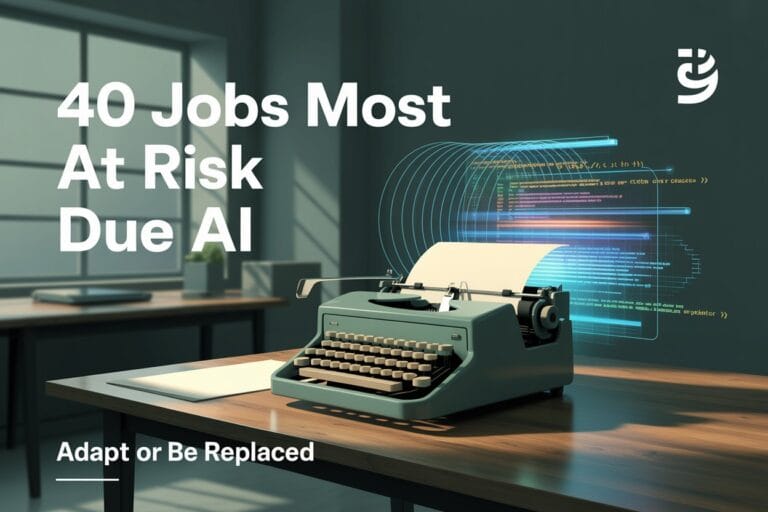
Hey everyone, welcome back to the blog. Today we’re diving into the future of software development: AI code review tools.
These aren’t your typical linting tools; we’re talking next level. AI that can understand your code improvements, and even catch those pesky bugs you might miss These tools are game changers for developers of all levels.
Whether you’re a seasoned pro or just starting out, we’re going to break down the top 5 AI code review tools of 2025: your AI pair programming partner, ChatGPT, for your codebase. The security sentinel, your AI-powered clean code assistant, and the classic Get smarter with AI. We’ll dive deep into what makes each one special. Stick around, let’s get into it .
Top 5 AI code reviewers
Top 5 AI Code Reviewers (2025)
| Rank | Tool Name | Key Features | Strengths | Limitations/Notes | Supported Languages/Integrations | Pricing/Availability |
|---|---|---|---|---|---|---|
| 1 | GitHub Copilot | – AI pair programmer – Code review agent – Code completion – Bug & performance detection – Suggests fixes | – Deep GitHub integration – Context-aware suggestions – Used by over 1M developers – Supports PR reviews and line-by-line comments | – Not a full substitute for human reviews – Paid subscription required | Visual Studio Code, JetBrains, GitHub Supports C, C++, Kotlin, Swift, more | Paid Copilot subscription |
| 2 | Code GPT | – Natural language queries – Code analysis & suggestions – Algorithm improvement advice | – Answers code questions in plain English – Integrates with IDEs – Analyzes for performance and bugs | – Can make mistakes – Guidance, not a replacement for expert review | Major IDEs (integration details vary) | Details vary by vendor |
| 3 | DeepCode by Snyk | – Security vulnerability detection – Bad practice identification – Detailed explanations & fixes | – Focus on security – Explains issues and suggests remediations – Integrates with Snyk tools | – Not perfect; still requires secure coding practices and human oversight | GitHub, GitLab, Bitbucket, IDE plugins | Free & paid plans (via Snyk) |
| 4 | Codiga | – Code quality & maintainability checks – Style violation detection – Auto-fix & reformatting – Customizable rules | – Improves code readability – Can auto-fix issues – Customizable to team standards | – Rule preferences may need tuning – Not all issues auto-fixable | IDE plugins, CI/CD, GitHub, GitLab | Free & paid plans |
| 5 | SonarQube | – Bug, vulnerability, and code smell detection – AI-powered suggestions – Issue prioritization – CI/CD integration | – Comprehensive code health overview – Learns from codebase over time – Popular in enterprise | – Effectiveness depends on configuration – Requires integration effort | 30+ languages, major CI/CD tools | Free (Community), paid (Enterprise) |
1. GitHub Copilot

First up, we have the GitHub Copilot tool that’s been making waves in the development world. Now, Copilot isn’t strictly a code review tool, but it’s so good at what it does, it blurs the line. Imagine having an AI pair programmer looking over your shoulder, suggesting code completions, and even generating entire functions based on your comments.
That’s C-Pilot. It’s like having a superpowered autocomplete that understands the context of your code. We’ll drop into some live coding to show you how Copilot can speed up your workflow.
You’ll see how it anticipates your needs, suggests code snippets even helps you write more efficient algorithms. The cool thing is it’s constantly learning from the vast GitHub code base; however, it’s important to remember that Copilot is still under development. It’s great for suggestions and speeding up your workflow, but don’t rely on it for full-blown code reviews.
Also Read – 10 Best Laptop to buy in 2025
2. Code GPT

Just yet, next we’re taking a look at Code GPT. This one leverages the power of AI’s GPT but is specifically trained on a massive data set of code. Think of it like ChatGPT, but instead of writing poems and scripts, it analyzes your code and suggests fixes just like a seasoned developer.
One of the standout features is its ability to understand natural language queries about your code. You can actually ask Code GPT questions like, is this function slow? or How can I improve this algorithm? and it will give you surprisingly insightful answers.
We’ll explore how you can integrate CodeGPT into your IDE and use its analysis to write better code. While CodeGPT is incredibly powerful, it’s important to note that, like any language model, it can sometimes make mistakes. Always double-check its suggestions and use it as a tool for guidance, not blind faith.
3. Deepcode

Now let’s talk about security. DeepCode by Snyk is an AI-powered code analysis tool that specializes in identifying security vulnerabilities and bad practices in your code. It’s like having a security expert constantly looking over your shoulder, making sure you’re not accidentally opening any backdoors.
DeepCode goes beyond just identifying potential issues; it also provides detailed explanations of why a particular line of code might be problematic and even suggests fixes. We’ll dive into its user interface.
Explore its various features and see how it stacks up against traditional static analysis tools While deep code is incredibly powerful at catching security flaws important to remember that no tool is perfect.
It’s still crucial to follow secure coding practices and have a robust security testing process in place.
Also read – Best AI for coding in 2025: AI Tools for Smarter, Faster Coding in 2025
4. Codiga

Moving on, we have Codiga is an AI tool that focuses on code quality and maintainability. If you’re a stickler for clean, readable code, Codiga is about to become your new best friend. It analyzes your code for style violations, potential bugs, and complexity issues.
Helping you write code that’s not only functional but also elegant One of Codiga’s standout features is its ability to automatically fix many of the issues it detects; it can reformat your code.
Optimize variable names and even suggest better data structures, saving you time and effort. We’ll put Codiga to the test with some messy code and see how it helps us whip it into shape. It’s important to note that Codiga, like any code style tool, has its own set of rules and preferences.
You can customize these rules to match your team’s coding style and integrate them seamlessly into your workflow.
5. SonarQube

Finally, we have SonarQube, a well-established name in the code quality space. Now, SonarQube itself isn’t, but recent versions have incorporated AI and machine learning to enhance its capabilities, making it more powerful than ever. SonarQube scans your codebase for bugs, vulnerabilities, and code smells, providing you with a comprehensive overview of your code health.
Its AI enhancements allow it to learn from your codebase over time, prioritizing issues and making more intelligent suggestions. We’ll explore SonarQube’s latest features, including its AI-powered code suggestions and its ability to integrate with popular CI/CD pipelines.
While SonarQube is a powerful tool, its effectiveness depends on how well you configure it and integrate it into your development workflow.
Conclusion
So there you have it: the top five AI code review tools of 2025 that are changing the game for developers. from AI pair programming with GitHub Copilot to security-focused analysis With Deep Code, these tools offer something for everyone. Remember, the best tool for you will depend on your specific needs and workflow.
Don’t be afraid to experiment and try out a few different options to find the one that fits you best. The future of coding is here, and it’s pretty awesome. That’s it for today’s blog. If you found this helpful, make sure to hit that subscribe button for more tech insights.
Let me know in the comments which AI code review tool you’re most excited to try out.
Notes on Selection and Features
- GitHub Copilot now includes a dedicated code review agent, offering automated reviews, bug detection, and suggestions directly in PRs and IDEs, making it the most widely adopted AI code reviewer today6910.
- Code GPT leverages large language models to answer developer questions about code and suggest improvements, acting like a conversational reviewer.
- DeepCode by Snyk is highly regarded for security scanning and actionable feedback, especially for teams focused on secure development.
- Codiga stands out for code quality enforcement and its ability to auto-correct style and maintainability issues, with customizable rules for different teams.
- SonarQube is a longstanding leader in static analysis, now enhanced with AI to provide smarter prioritization and suggestions, especially valuable for large codebases.
All tools listed support integration with popular IDEs and version control platforms, and most offer both free and paid plans depending on usage and scale. For optimal results, these AI reviewers should complement, not replace, human code review practices.
FAQs
Q.1 What is an AI code reviewer?
A software tool driven by artificial intelligence called an AI code reviewer automatically examines code changes, finds bugs, security holes, and style problems, and offers developers practical comments. These tools enhance code quality and simplify the review process by working with development environments and code repositories.
Q.2 Which are the top AI code reviewer tools in 2025?
Some of the most highly rated AI code reviewers in 2025 include:
- Zencoder
- CodeRabbit
- Bito’s AI Code Review Agent
- HackerOne Code
- Sourcery
- Codacy
- CodeAnt AI
- CodeLantis
Q.3 What features should I look for in an AI code reviewer?
Key features to consider include:-
- Deep and intelligent code analysis (detecting security, performance, and logic issues)
- Seamless integration with IDEs, GitHub/GitLab, and CI/CD pipelines
- Customizable review rules and workflows
- Actionable, clear feedback and summaries
- Scalability and support for multiple languages
- Enterprise-grade security and compliance (e.g., GDPR, SOC 2)
- Noise reduction and learning from team feedback
Q.5 What programming languages do AI code reviewers support?
Most leading AI code reviewers support a wide range of languages-often 30 or more-including Python, JavaScript, Java, C#, Go, and more. Check each tool’s documentation for specific language support



